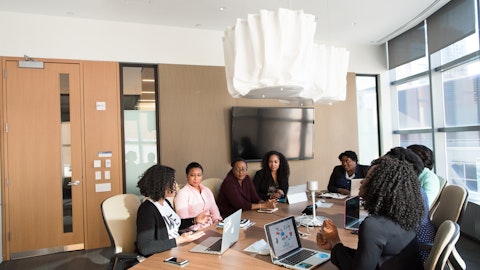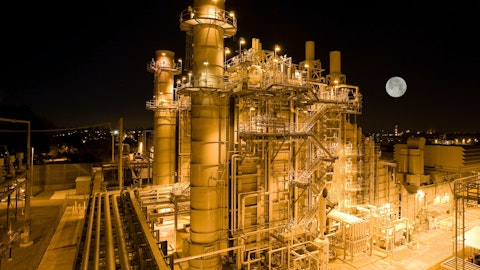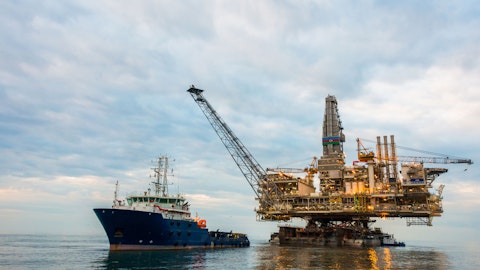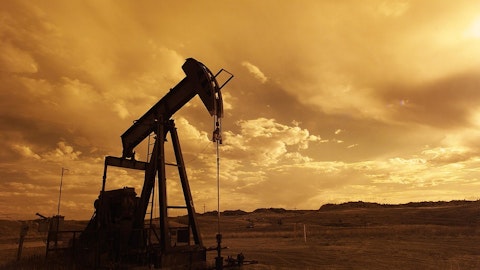John Christmann: Yes. We’ll give you the details when we rollout the plan in February, but we’ll show growth most likely year-over-year end exit. But let us give you those details in February.
Scott Gruber: Okay. And then, just think about the next few years. You have a project that would be moving forward in Suriname and obviously you have the carry from Total. You still have $1 billion or so of commitment. Can you just speak to whether that impacts your cap allocation across the rest of the portfolio on a multi-year basis?
John Christmann: Yes. I mean we look at the multi-year plan and that’s the beauty of the carry is it’s going to keep that in a very, very manageable place from where we’ve been. So I mean that we basically structured that deal, banking on success and you’ll see that start to follow through if we move through the next phases. So got to FID a project first, but that’s where the carry will kick in.
Operator: Our next question comes from Roger Read with Wells Fargo Securities. Roger, your line is open. Go ahead.
Roger Read: Yes. Thanks. Good morning. Just to follow-up Egypt had a little release of capital or working capital this quarter. Just how do you think that looks going forward? And also in Egypt, given that they’ve had some gas issues related to imports in the med, any interest or pressure from Egypt to have you increase gas production there? Is that something that could occur in 2024? That’s not really a reasonable assumption given locations of fields and takeaway capacity, et cetera.
John Christmann: There’s no doubt Egypt needs more gas production. We’re flowing everything we can into the grid, which is where our gas goes. Our program has been focused on oil as we receive 265 per MMBtu there. But short-term there’s not anything we could do to increase gas production. But there are some longer-term projects, but we would need to work on a higher gas price there.
Roger Read: And on the working capital thoughts?
Steve Riney: Yes, on the working capital, this is Steve. So we did have an increase in working capital in the quarter in Egypt, as you will see in the supplement. So the receivables did go up during the quarter, but receivables from EGPC actually went down during the quarter. And if we go back to first quarter of this year, when I think the concern about the payments from EGPC kind of surfaced at that point in time with the first quarter results in May. Since that time, from first quarter — end of first quarter to the end of the third quarter, EGPC receivables have gone down and so have the past due receivables from EGPC. So I think we’re in good shape there. We’ve made making progress; we’ve made some good progress. And as John always says, we’re in constant contact with the highest level folks in Egypt about managing that receivable balance.
So we’re making some good progress there. More to go, but we’re making good progress. I think the issue with a reason why receivables went up in the third quarter is because we were exporting more cargoes than selling them to third parties. And those third-party receivables have gone up during the quarter because we were — third-party receivables were low at the end of the second quarter and higher at the end of the third quarter. So those are receivables that are just paid under normal terms from our normal credit worthy and on time paying purchasers of the oil coming out of Egypt in export cargos.
Roger Read: And that’s in that situation, just normal seasonal or month-to-month kind of changes, nothing to read into that percent of that.
Steve Riney: Right, right. And you’ll see there is a — at the corporate level, not just in Egypt at the corporate level, there’s a meaningful increase in working capital during the quarter. And that also is just seasonal type things. We had some payables in particular a large one around taxes, large cash payment in taxes in the UK that comes in the third quarter. And so a lot of seasonality to working capital movements for the company as a whole.




